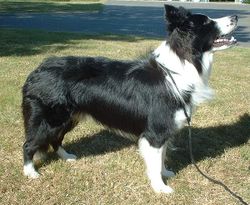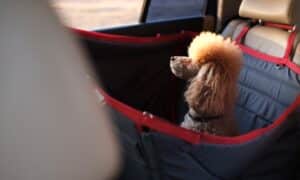
We are a society very much attuned to what is politically correct. Many people believe a person who breaks the law had, as the cause, an abused childhood. The same could be said for dogs. A puppy that is beaten, starved, abandoned and made to suffer privation in any form should, according to this standard, be a ‘bad’ dog. Such is not the case, any more than all children who go hungry and neglected, are beaten and abused, turn out to be criminals. That is not to say this could be the case but it is not an absolute. It could be a contributing factor.
By the same token, a puppy lavished with affection won’t necessarily be a happy, well behaved dog. On the contrary, unless some basic training is done, a puppy will probably become destructive; he will chew furniture and clothing, bark and annoy the neighbors and without a doubt, will pull on his leash, jump on people and in just about every way imaginable, be a nuisance and a pest.
I have observed my dogs over the years. I have given them ‘jobs.’ I have noticed that my dogs are happiest when their life is consistent. They get their minds and bodies exercised on a daily basis; they are groomed regularly and are exposed with forethought and gentleness, as much as is possible, to new and stimulating circumstances. Their diet is, if not precisely the same, at least similar and they are fed within a few minutes of the same time every day.
Discipline is an important factor in having a happy, well behaved dog. A dog needs to know the rules. I am not anthropomorphizing when I say this. I have come to this conclusion after years of observation, research, and hands on experience.
A person who owns a dog needs to be the leader. A good leader is consistent and patient but allows no straying from the established norm nor is he arbitrary in what he considers correct behavior. If he doesn’t do so, then it leads to confusion and frustration. But it is the dog who is usually blamed for the misbehavior.
There are many different schools of thought about dog training. Some people use treats, some toys, some clickers and some abuse. It is my contention that a dog trained through fear and intimidation is a bite waiting to happen. Positive reinforcement, on the other hand, combined with good timing, consistency and patience can change the behavior of even the most recalcitrant pup. A kind person begets a kind dog. Kindness doesn’t indicate weakness; on the contrary, it is an extraordinary asset for training a dog.
An equally important part of training is timing. If a dog doesn’t ‘get’ why it is given a treat or has a treat withheld, the linking of behavior to reward is extremely difficult to make. A good trainer is very clear about what is needed in order to get that tasty tidbit. He starts slowly, with clear directions and awards the prize, the motivation for doing what is asked, immediately upon getting the behavior he wants. At times, it may be necessary to reward the inclination to do what is asked.
As an example, do you have a dog that doesn’t come when he is called? Not only is lack of recall dangerous, it’s extremely annoying to call and call and watch Rover ignore you until he has tired of whatever it is he is doing. How do you, as a trainer, replace the indifference of the recall with the enthusiasm to return to you?
There are many books, DVD’s, TV shows and private trainers who can show you what to do to change your dog’s behavior. Hopefully, you will learn that something as minor as a slight movement toward you if you are teaching the recall is worthy of a reward. Never ask for something from your dog that you can’t enforce and be lavish with your praise when you get what you want, even if it is only one step!





